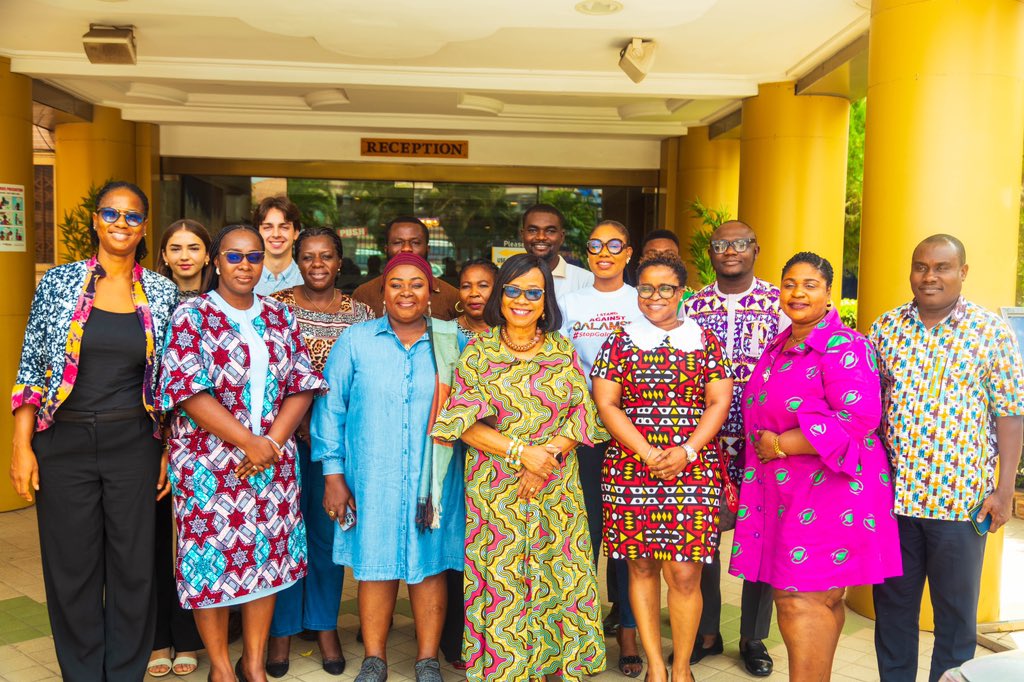The Media Foundation for West Africa (MFWA) has successfully ended a series of engagements with key stakeholders as part of processes to develop a roadmap on advancing gender equality in the Ghanaian media. Between June and September 2024, four sessions were held in Accra with representatives from academia, gender-focused CSOs, policymakers and media associations, and journalists/media managers. These sessions sought to garner insights, ideas and recommendations from these strategic groups to shape the development of a joint document to promote women empowerment in the Ghanaian media industry.
The multistakeholder engagements form part of activities under the ongoing MFWA-CFI project which seeks to combat inequalities and stereotypes linked to gender, and promote women at all levels of responsibility in Ghanaian and Ivorian societies. More specifically, the project aims to strengthen the capacities of media professionals to promote a better and more balanced gender representation through managerial and editorial policies and practices.
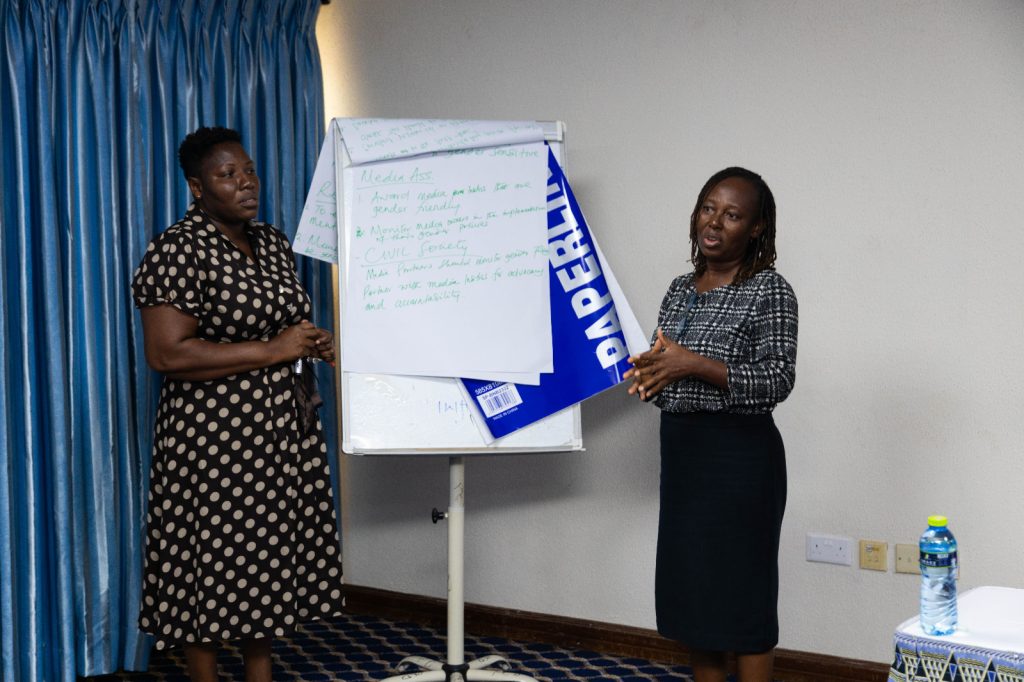
Led by expert facilitators, the sessions comprised a baseline presentation on the state of gender inequality in the Ghanaian media, group work and plenary discussions to dissect and explore the breadth of issues, including challenges and opportunities, relating to gender equality in the media.
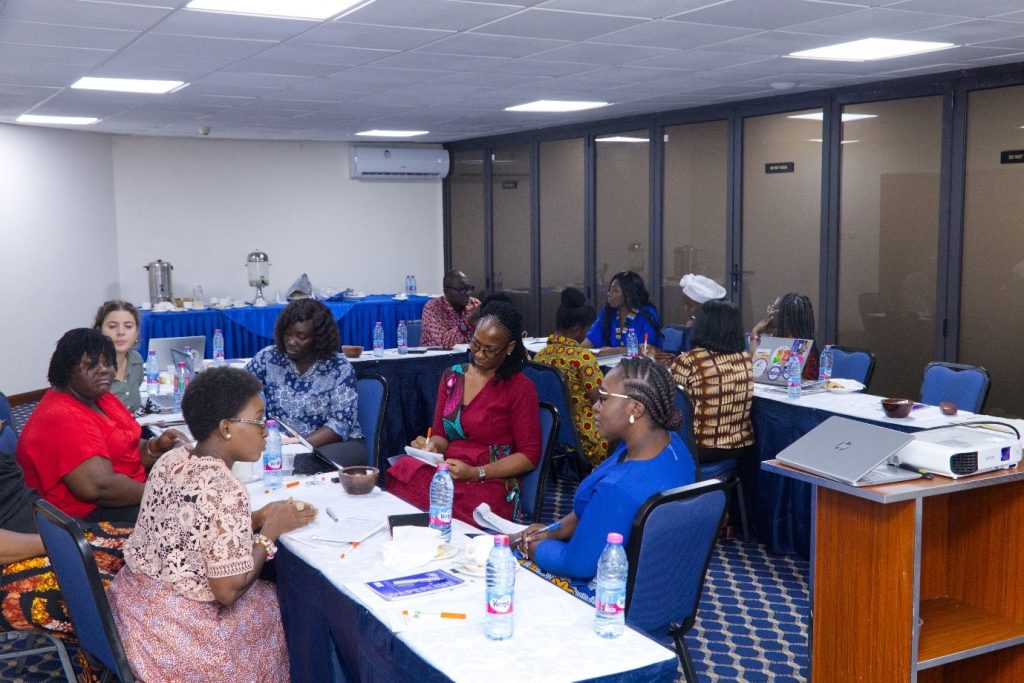
It came up strongly during the engagements that inadequate anti-sexual harassment policies within media organisations make the workplace particularly unsafe for women. For context, key findings from three gender-related studies in the media in Ghana were referenced. These include a report from a research on the state of women in Ghanaian media by the Alliance for Women in Media Africa (AWMA) and School of Information and Communication Studies, University of Ghana, the Ghana National Gender Policy, the National Media Policy, and a UNDP report on the underrepresentation of women in leadership.
The reports show that majority of women in media (up to 56%) have training up to the undergraduate level, with only 6% holding masters’ degrees. It also came up that less than half (40%) of female journalists work in permanent employment. Also, 74% of women in the Ghanaian media occupy junior or senior reporter roles, while only 30% hold management positions.
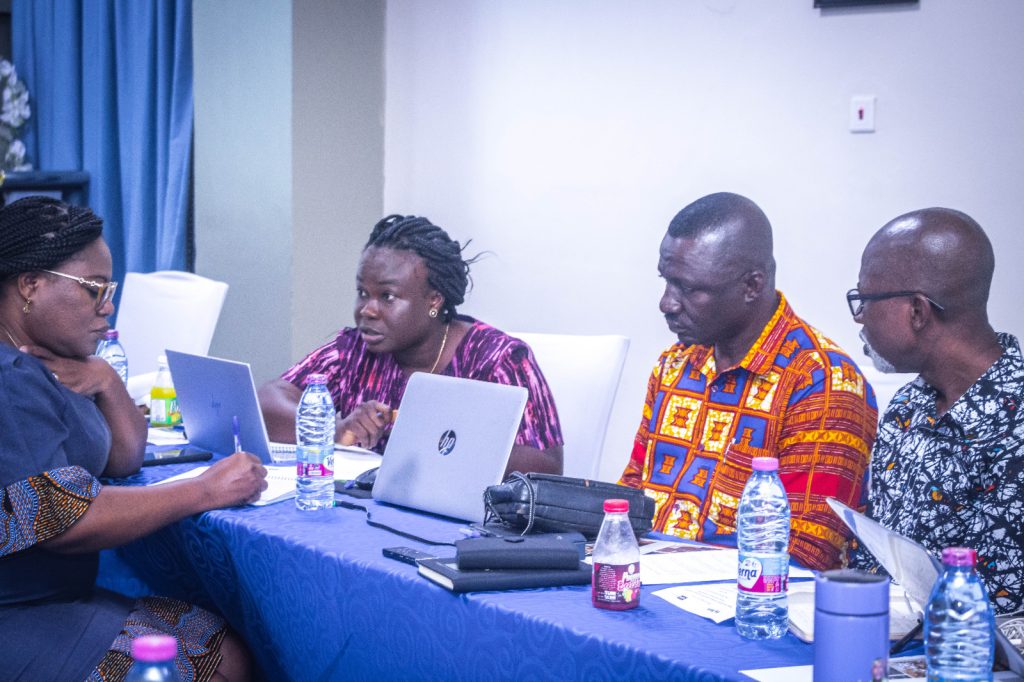
It was also highlighted that sexual harassment against women in Ghana is very underreported, with only six out of 100 news stories focusing on harassment, assault, or rape. Meanwhile, women continue to be underrepresented in news reports, with just 25% of stories concerning women.
Women, generally, are not well represented in decision making spheres, but specifically in the media, only 27% of them hold top management positions in media organizations.
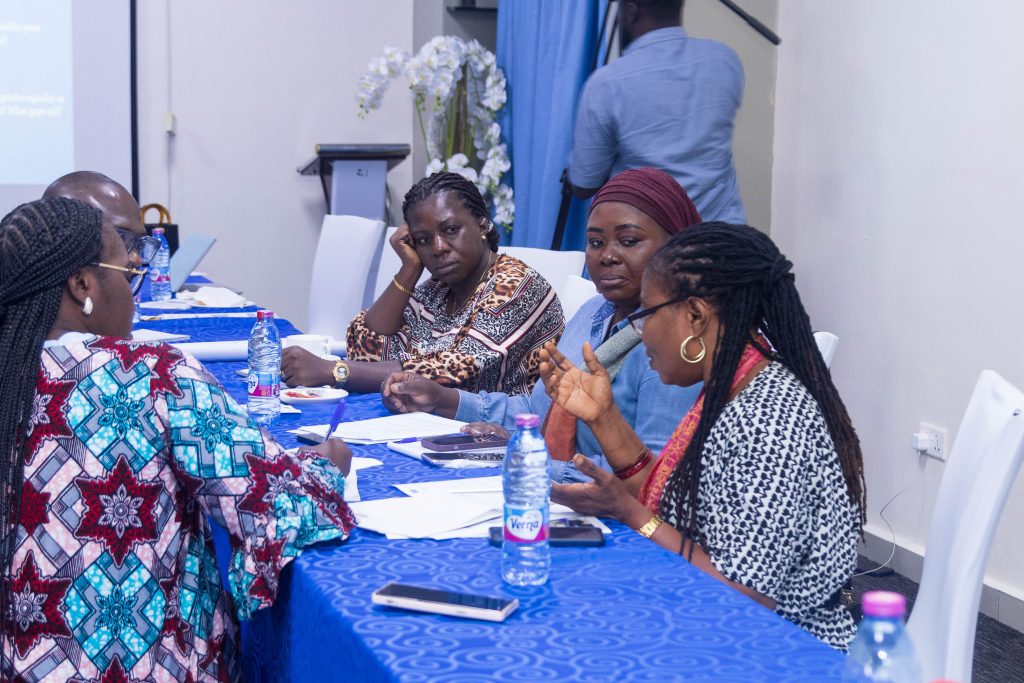
Participant testimonials
Participants in the dialogues expressed gratitude for the opportunity and shared feedback and impressions of the dialogues. Bertha Badu-Agyei, the Editor of the Gender Desk at the Ghana News Agency said; “It has been very useful, especially the discussions and suggestions as to measures to take to mainstream gender in the newsrooms and other measures. Particularly, the need to have separate and clearly defined gender policy in all the media houses and not the usual way of embedding just a page in the CBAs.” The Deputy Editor at GH One television/ Starr FM, Joshua Kodjo Mensah also had this to say; “Today’s strategy was an eye opener on various fronts as it threw light on the need for a comprehensive policy to address the challenge. The presentations were spot-on and the group discussions presented an avenue to share crucial ideas. The points espoused clearly show a roadmap to what can be used and done to advance the cause.” On his part, Alfred Ocansey, Head of Political Desk at TV3 noted the session was engaging and productive, adding that “I appreciate the diversity in gender issues much better now. We need to be more deliberate in ensuring that gender representation improves in our media houses.” Nana Yaa Konadu Yiadom who heads the Social Development Desk at the Despite Media Group also shared positive feedback; “(it was) a very essential session that will help position gender issues well, especially the areas that affect women in the media. If well implemented, it will position women to play their roles as media practitioners very well.”
Recommendations
At the end of the discussions, participants made a number of recommendations to address the current state of gender inequality in the media. Among others, it was recommended that: media organisations which report gender-sensitive stories should be recognized and awarded; funding should be sought and committed to incentivizing media organisations to produce impactful gender sensitive stories; media organisations should adopt and implement gender sensitive policies to protect employees, as this was considered a basic requirement; gender-focused CSOs should build healthy partnerships and alliances with media organisations and also create a cross-sectoral directory of women experts who the media can contact as sources for various issues, similar to the ‘Quote This Woman+’ platform in South Africa.
The full breadth of recommendations and strategies will be captured in the strategy document/roadmap, which is currently being developed by the expert facilitators. Other activities already implemented under the Equal Voices’ project include; training for 16 journalists in Ghana and Ivory Coast in gender sensitive reporting and 32 female journalists, including freelancers in Ghana and Côte d’Ivoire on women empowerment.



